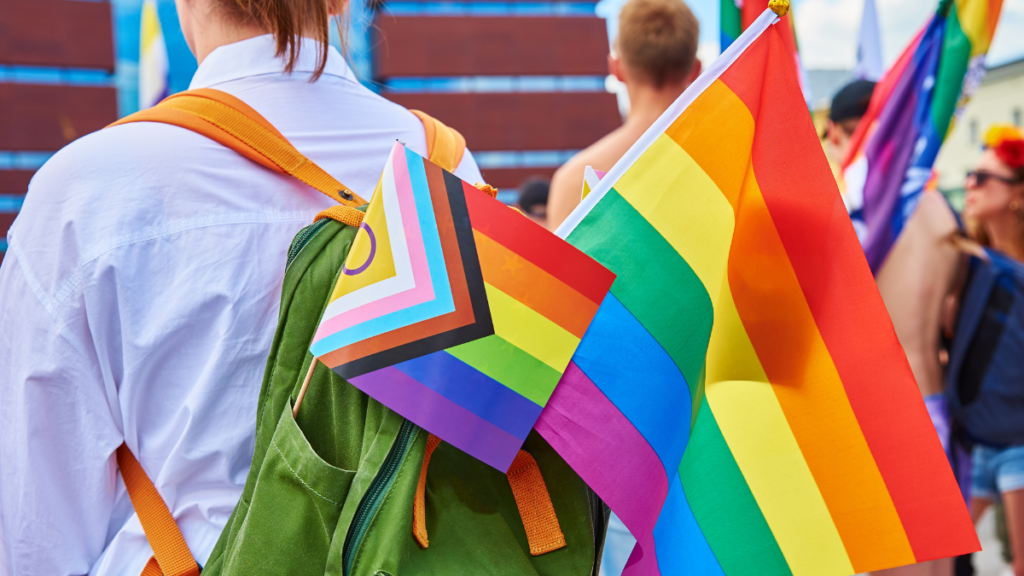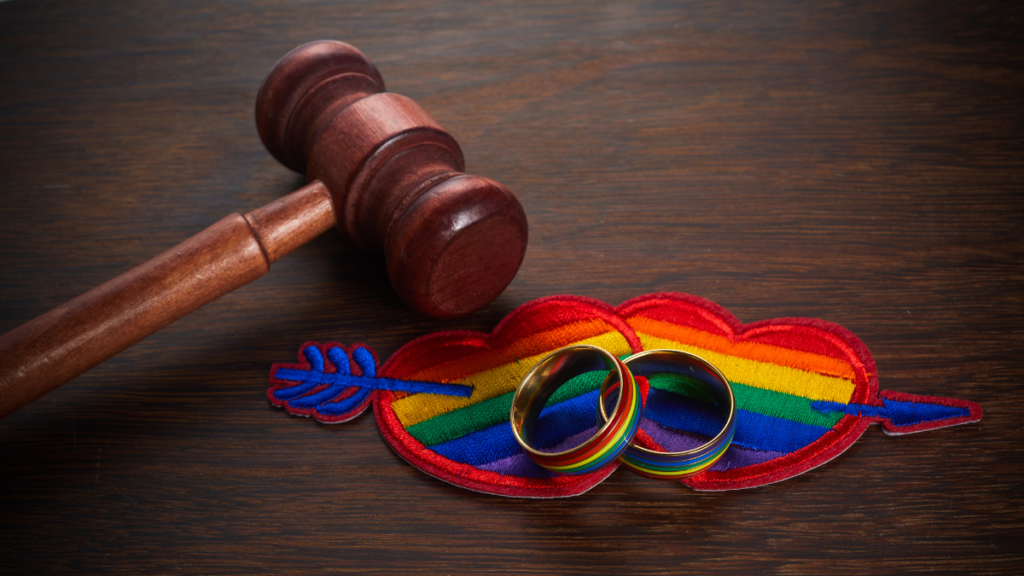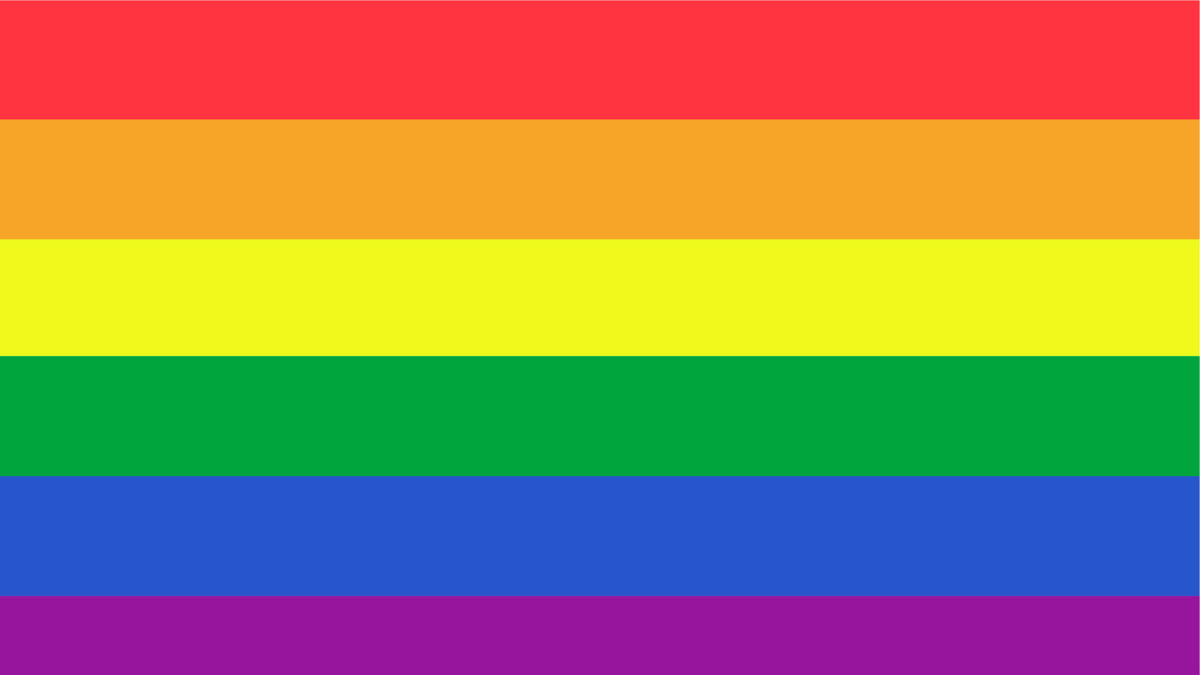California Schools Ban LGBTQ Pride Flags, Sparking Controversy and Constitutional Debates

Learn why California schools are banning Pride flags and its implications for the LGBTQ+ community.
Growing List of California Schools Join Ban on LGBTQ Pride Flags

Conflicting Opinions Emerge as School Boards Vote on Flag Restrictions
California schools are making headlines as they join a growing list of districts across the country that are banning the display of LGBTQ Pride flags. This controversial move has raised concerns among civil rights advocates who argue that such flags are protected expressions under the constitution.
Two school boards in California recently voted in favor of banning certain flags, including the iconic LGBTQ Pride flag. These decisions have sparked intense debates among parents, with both supporters and opponents voicing their opinions on the matter.
In an attempt to avoid favoring any specific group, many school districts nationwide have implemented flag restrictions. These restrictions limit flag displays to government and military flags, effectively resulting in the ban of the LGBTQ Pride flag, according to LGBTQ advocates.
Critics of this ban argue that it has become evident that the real focus of these restrictions is on banning the rainbow flag. Jay Blotcher, co-founder of New York City’s Gilbert Baker Foundation, an LGBTQ advocacy group named after the creator of the Pride flag, stated, “They’re willing to put a ban on other flags in their zeal to ban the rainbow flag.”
The ban on gay Pride symbols in schools has been concerning LGBTQ groups for months, as they see it as an extension of curriculum bans that restrict discussions about LGBTQ topics. In many states, these curriculum bans were passed alongside restrictions on critical race theory, highlighting a broader agenda against inclusion and diversity, according to advocates.
Gillian Branstetter, a spokesperson for the American Civil Liberties Union LGBTQ and HIV Project, believes that the efforts to marginalize transgender youth, ban books, and ban Pride flags all share a common objective—to create a less safe environment for queer youth. She emphasized the importance of flags as symbols of safety, respect, and love for one’s identity.
In response to these nationwide flag bans, the American Civil Liberties Union and the Gilbert Baker Foundation have joined forces to provide legal resources for communities across the country to fight against these proposals in court.
Instances of municipalities banning specific flags on government property and school boards imposing restrictions on Pride flags have been documented by the Gilbert Baker Foundation. In California and across the country, there were recent instances where municipalities voted against flying Pride flags during Pride Month, as reported by Blotcher.
This past week, two Californian school boards passed flag bans, revealing ideological differences within the voting process. The Sunol school board in Alameda County voted 2-1 to ban Pride flags at the town’s only elementary school. Similarly, the Temecula school board in southern California voted 3-2 to ban all flags except the U.S. flag and the state flag, with limited exceptions. Parents in both cases are considering recall attempts against conservative board members who favored these bans.
Jay Blotcher highlighted the need for affirmation and support for young LGBTQ individuals, especially within educational institutions. He pointed out that suicide rates among queer youth are higher than other groups, and that being LGBTQ is becoming increasingly challenging. Blotcher expressed concern that suppressing LGBTQ identity by banning the flag poses an additional risk to these vulnerable students.
According to the ACLU, policies that solely ban Pride flags can be considered “viewpoint discrimination” under the First Amendment of the U.S. Constitution. The Supreme Court has ruled that First Amendment protections extend to teachers and students, who do not forfeit their constitutional rights to freedom of speech or expression within school premises. However, until a lawsuit challenging the constitutionality of Pride flag bans reaches the Supreme Court, municipalities and school boards can continue to pass blanket flag bans.
The ban on LGBTQ Pride flags in California schools has ignited controversies and raised important constitutional questions. While advocates argue for the protection of expressive rights, opponents believe these bans promote uniformity. The ongoing debates will shape the future of LGBTQ visibility and inclusion in educational institutions.


